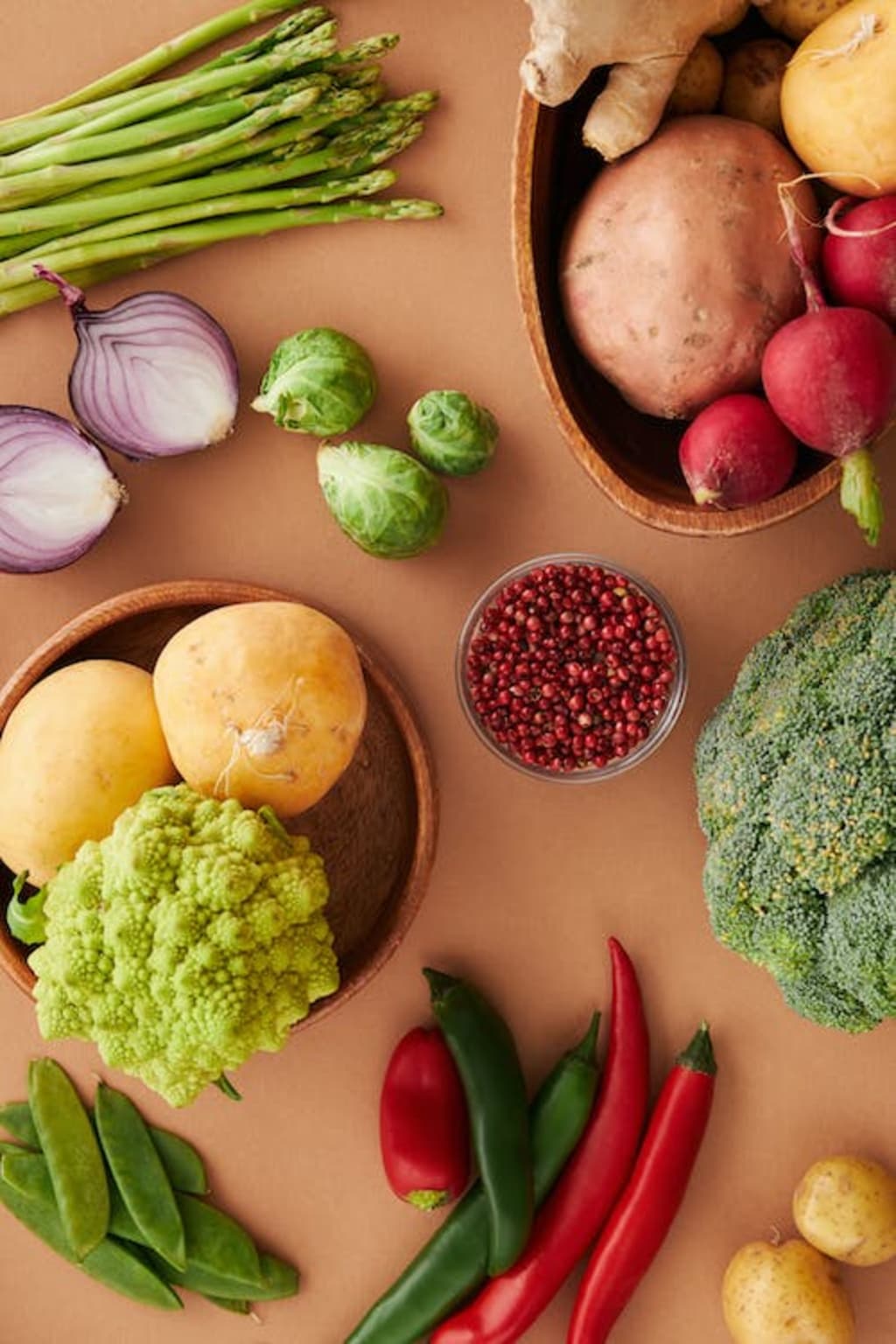Content warning
This story may contain sensitive material or discuss topics that some readers may find distressing. Reader discretion is advised. The views and opinions expressed in this story are those of the author and do not necessarily reflect the official policy or position of Vocal.
ENGERY FROM VEGETABLES
Eating Benefits of Vegetables

Eating Benefits of Vegetables: A Comprehensive Guide
Table of Contents
1. Introduction: The Importance of Vegetables in Our Diet
2. The Nutritional Value of Vegetables
3. Antioxidant Vitamins in Vegetables
4. The Health Benefits of Including Vegetables in Your Diet
5. The Variety of Colors and Their Benefits
6. Specific Vegetables and Their Benefits 6.1 Carrot: The Power of Beta-Carotene 6.2 Tomato: A Nutrient Powerhouse 6.3 Spinach: A Leafy Green Nutrient Booster
7. Conclusion
8. Frequently Asked Questions (FAQs) 8.1. How many servings of vegetables should I eat per day? 8.2. Can I get all the necessary nutrients from vegetables alone? 8.3. Are cooked vegetables as nutritious as raw vegetables? 8.4. Can vegetables help with weight loss? 8.5. How can I incorporate more vegetables into my daily meals?
1. Introduction: The Importance of Vegetables in Our Diet
Vegetables are essential components of a healthy and balanced diet. They are parts of plants that provide vital nutrients when consumed by humans or other animals. Whether eaten raw or cooked, vegetables play a crucial role in human nutrition, contributing to overall well-being.
2. The Nutritional Value of Vegetables
Vegetables are known for being low in fat and carbohydrates, making them an excellent choice for maintaining a healthy weight. Additionally, they are rich in vitamins, minerals, dietary fiber, and water. These essential nutrients support various bodily functions and promote overall health.
3. Antioxidant Vitamins in Vegetables
One of the key nutritional benefits of vegetables lies in their high content of antioxidant vitamins. These vitamins include vitamin A, vitamin C, and vitamin E. Antioxidants protect the body's cells from damage caused by free radicals, which can lead to various diseases.
4. The Health Benefits of Including Vegetables in Your Diet
Including vegetables in your diet has been linked to a reduced incidence of cancer, stroke, cardiovascular disease, and other chronic ailments. Different vegetables offer unique health benefits, so it is essential to incorporate a variety of colors into your meals. By doing so, you can ensure that you receive a broad spectrum of nutrients.
5. The Variety of Colors and Their Benefits
Vegetables come in a range of vibrant colors, each associated with specific health benefits. By choosing a variety of colors every day, you can maximize your nutrient intake. Here are some examples:
• Green Vegetables: Broccoli, spinach, peas
• Orange Vegetables: Carrots, pumpkin, sweet potatoes
• Red Vegetables: Tomatoes
• White Vegetables: Mushrooms
6. Specific Vegetables and Their Benefits
6.1 Carrot: The Power of Beta-Carotene
Carrots are root vegetables known for their vibrant orange color. They contain vitamin A in the form of beta-carotene, which supports healthy eyesight. Regular consumption of carrots can help improve vision and maintain eye health.
6.2 Tomato: A Nutrient Powerhouse
Tomatoes are not only delicious but also packed with nutrients. A single tomato can provide about 40 percent of the daily recommended minimum of vitamin C. They also supply vitamin A, which supports immunity, vision, and skin health. Tomatoes are also beneficial for bone and heart health.
6.3 Spinach: A Leafy Green Nutrient Booster
Spinach is a green leafy vegetable loaded with essential vitamins and minerals. It is rich in vitamin A, vitamin C, and vitamin K, which are crucial for various bodily functions. Spinach also contains magnesium and iron, making it a fantastic choice for maintaining overall health.
7. Conclusion
Incorporating vegetables into your daily diet is vital for optimal health and well-being. The diverse range of nutrients found in vegetables helps protect against diseases and supports various bodily functions. By choosing a variety of vegetables in different colors, you can maximize the nutritional benefits they offer.
8. Frequently Asked Questions (FAQs)
8.1. How many servings of vegetables should I eat per day?
The recommended daily intake of vegetables depends on several factors, including age, sex, and activity level. However, as a general guideline, aim for at least 2 to 3 cups of vegetables per day.
8.2. Can I get all the necessary nutrients from vegetables alone?
While vegetables are nutrient powerhouses, it's important to have a balanced diet that includes other food groups. Incorporate a variety of fruits, whole grains, lean proteins, and healthy fats to ensure you receive all the necessary nutrients.
8.3. Are cooked vegetables as nutritious as raw vegetables?
Cooking vegetables can alter their nutrient composition, but it can also enhance the bioavailability of certain nutrients. Some vitamins, such as vitamin C, may be partially lost during cooking. To maximize nutrient intake, consider a combination of raw and cooked vegetables.
8.4. Can vegetables help with weight loss?
Yes, vegetables are low in calories and high in dietary fiber, making them an excellent choice for weight loss. They provide satiety and essential nutrients while helping to maintain a calorie deficit.
8.5. How can I incorporate more vegetables into my daily meals?
There are numerous ways to incorporate more vegetables into your meals. Some ideas include adding them to salads, stir-fries, soups, and smoothies. You can also experiment with new recipes or try vegetable-based alternatives to your favorite dishes.
Get Access Now: https://bit.ly/J_Umma
In conclusion, vegetables are not only delicious but also offer a wide range of health benefits. By including them in your diet regularly, you can improve your overall well-being and reduce the risk of various diseases. So, start exploring the colorful world of vegetables and reap their incredible rewards!
About the Creator
Enjoyed the story? Support the Creator.
Subscribe for free to receive all their stories in your feed. You could also pledge your support or give them a one-off tip, letting them know you appreciate their work.





Comments
There are no comments for this story
Be the first to respond and start the conversation.